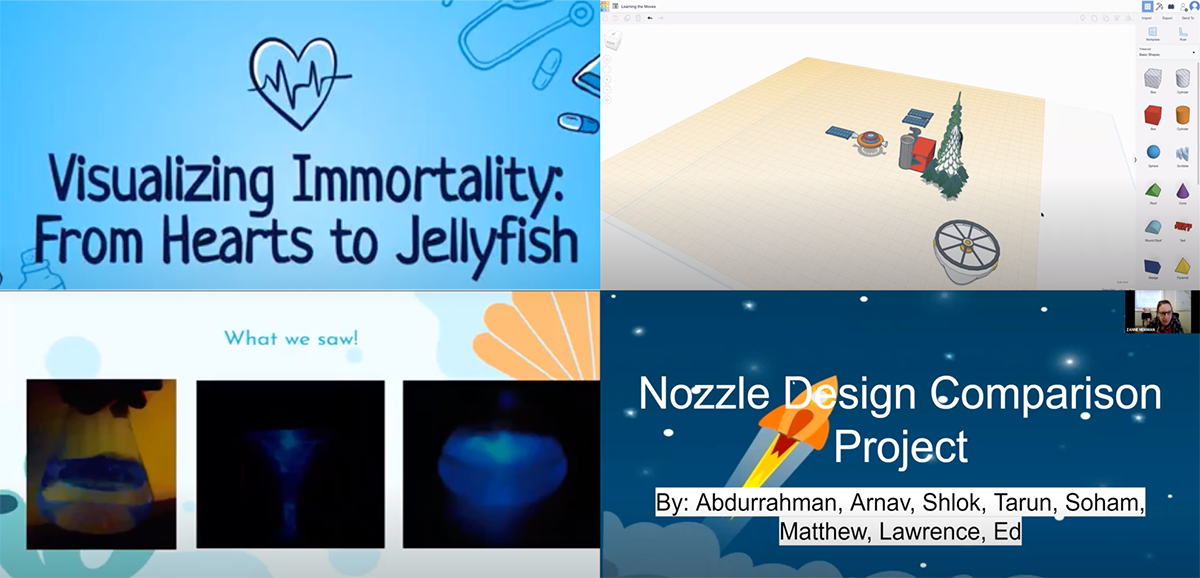Starting from September 2020, six groups of 38 students from Franklin STEAM Academy in Champaign met every Tuesday afternoon after school to conduct research on important topics. The project, called “STEAM TRAIN,” involved the 6th-8th grade students, researchers from the Carl R. Woese Institute for Genomic Biology, and a dozen students from University Laboratory High School, or Uni High. The projects concluded in May 2021.

The STEAM (Science, Technology, Engineering, Arts, and Mathematics) TRAIN (Transdisciplinary Research Across Institutional Near-peers) project was selected for stage 1 funding by the University of Illinois’ Community Research Partnership Program (CO+RE). The grant, which has recently been awarded stage 2 funding, is used to fund partnership events between researchers and community members.
The program was organized by the IGB’s Outreach Senior Activities Coordinator Daniel Urban, Franklin’s Magnet Site Coordinator Zanne Newman, and Uni High’s chemistry teacher David Bergandine. Their main objective was to inspire autonomous, curiosity-driven student research through interactions with near-peer mentors. They hoped that the Franklin students would discover their love for science by exploring difficult issues that they’re passionate about.
The Uni High students were recruited to serve as a bridge since students may feel more comfortable forming connections with mentors who are closer to them in age. The idea was to create a chain of people who were closer in age so that there was a level of comfort among all the participants.
Unfortunately, due to COVID-19, the format for STEAM TRAIN had to be adjusted. Instead of meeting at Franklin every other week after school, all the participants met on Zoom. They began in the main room and then adjourned to breakout rooms. “COVID certainly limited the scope of what we wanted to achieve and made us readjust our plans on the fly. While Zoom would not have been our first choice, the students quickly adjusted to the online format,” Urban said. Nevertheless, the topics that were researched by the students rivaled what is explored by cutting-edge laboratories across the world: rocket fuels, bird navigation in adverse weather, carbon capture, designing disposable packaging, tissue regeneration, and bioluminescence.
The final student presentations were carried out online and each group explained the inspiration behind their project, their research methods, what they found out, and how they plan on continuing the project, hopefully in-person, next year. “Throughout the year, the persistence and creativity of the students continued to astound us. As much as we hope the program benefited them, these kids served as a source of inspiration for us as well,” Urban said.
